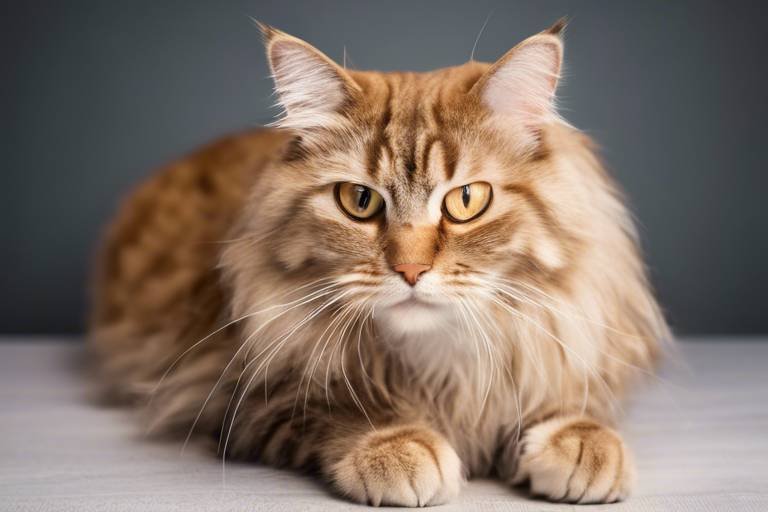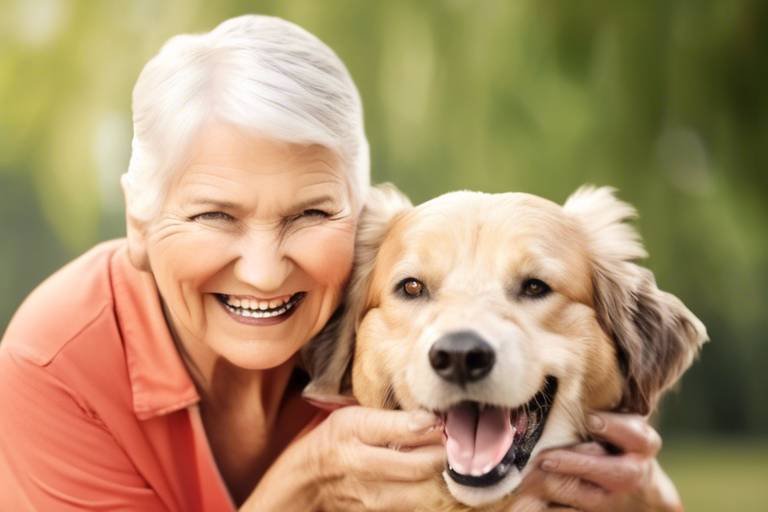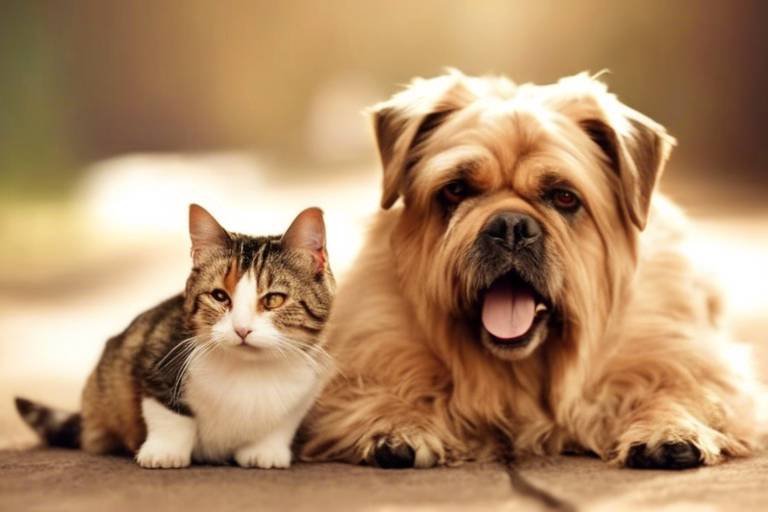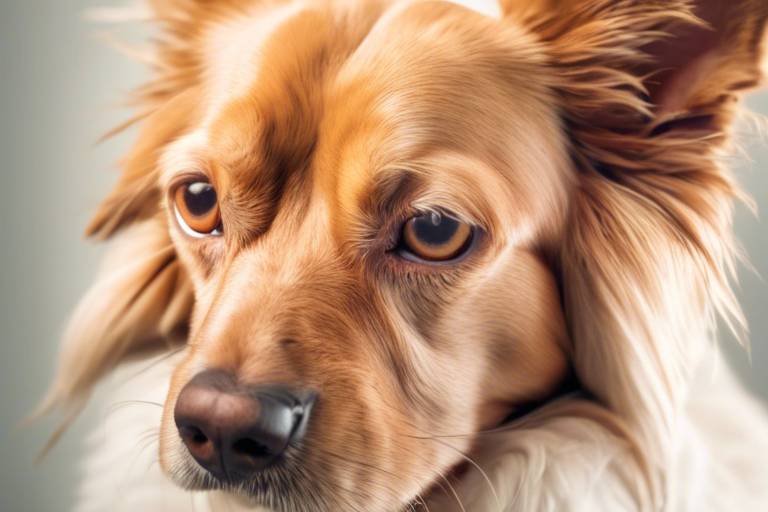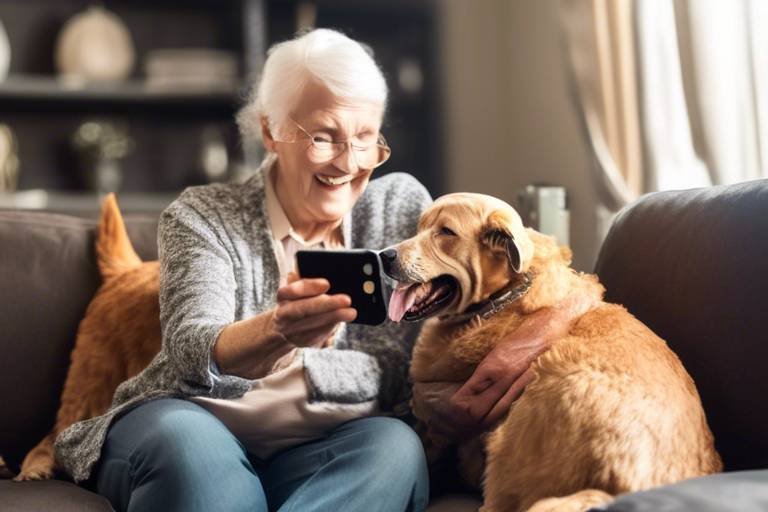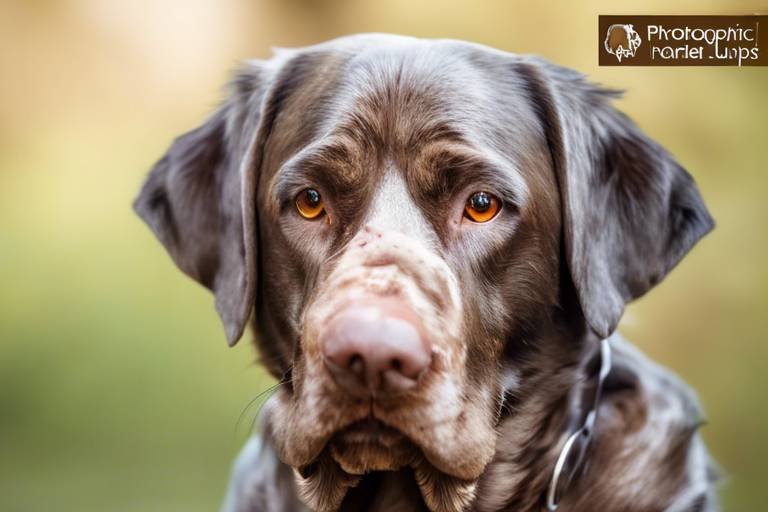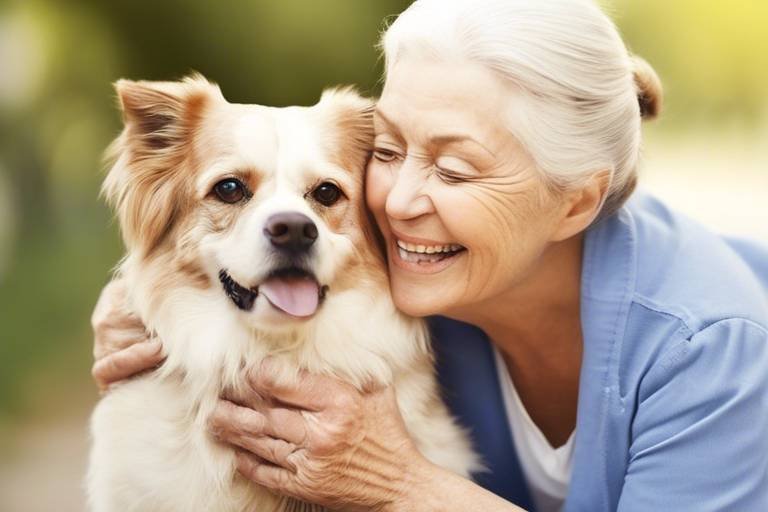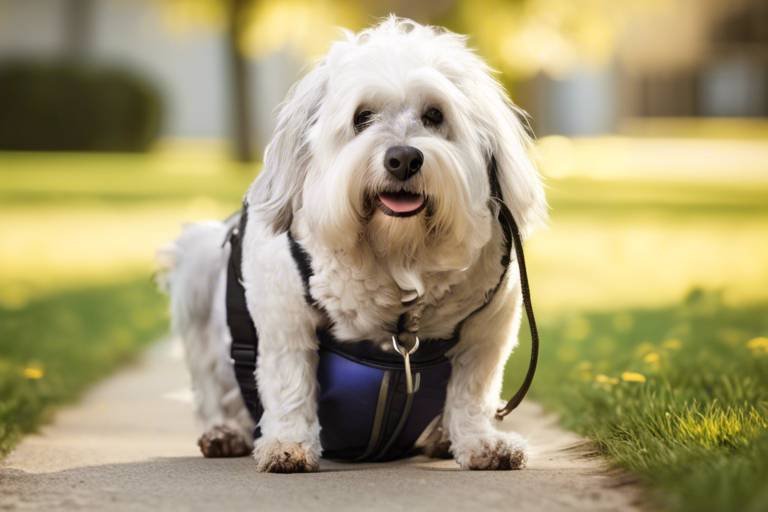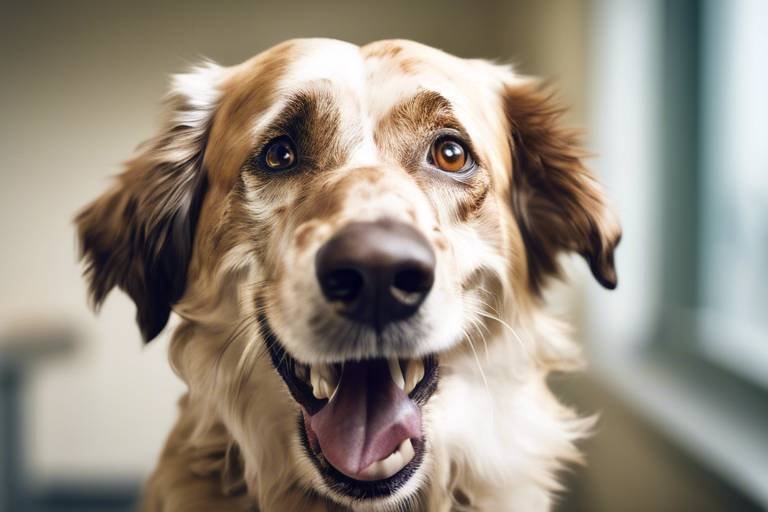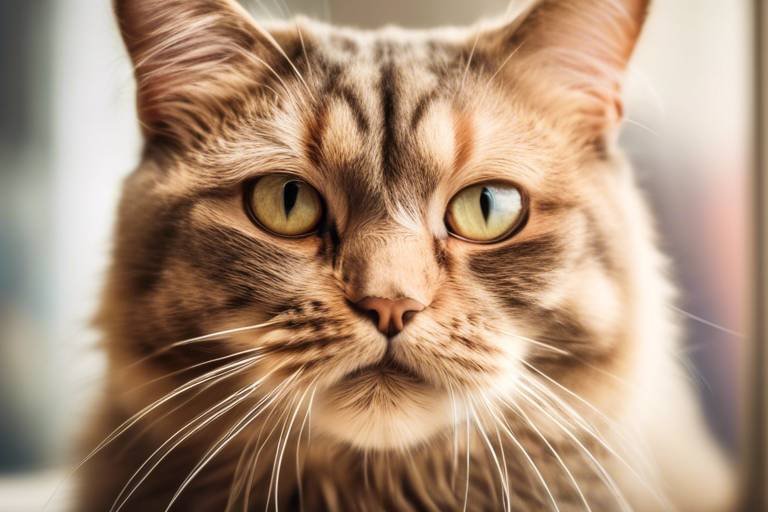Understanding the Nutritional Needs of Senior Cats
As our beloved feline companions age, their nutritional needs evolve significantly. Just like how a fine wine gets better with age, senior cats require a tailored diet to support their health and vitality. It’s not just about feeding them; it’s about providing the right kind of nourishment that caters to their unique physiological changes. As a cat parent, you might wonder, "What exactly do my senior cats need?" Well, let's dive into the specifics of their dietary requirements, ensuring they lead a happy and active life well into their golden years.
As cats age, their bodies undergo various changes that can affect their nutritional needs. Just like humans, senior cats experience a slowdown in metabolism, which can lead to weight gain if their diet isn’t adjusted accordingly. Additionally, their digestive systems may become less efficient, making it crucial to provide easily digestible foods. Not to mention, older cats often face health issues such as arthritis, kidney problems, and dental issues, all of which can influence their dietary requirements. Understanding these changes is crucial for providing the right diet to support their health.
Senior cats have specific nutritional requirements that differ from younger cats. As they age, their bodies require a balance of essential nutrients to maintain their health. Here’s a quick breakdown of what they need:
- High-quality protein: To maintain muscle mass and support overall health.
- Healthy fats: For energy and to keep their skin and coat healthy.
- Fiber: To aid in digestion and prevent constipation.
- Vitamins and minerals: For immune support and overall well-being.
It’s important to note that not all senior cats will have the same dietary needs. Factors such as their activity level, health status, and personal preferences can all play a role in determining the best diet for them. Consulting with a veterinarian can help tailor a diet specific to your cat’s needs.
Protein is vital for maintaining muscle mass in senior cats. As they age, they may lose muscle more easily, so it’s essential to provide high-quality protein sources. Recommended protein levels for older felines should be higher than those for younger cats, typically around 30-40% of their diet. This ensures they have the energy to play, explore, and enjoy life. Think of protein as the building blocks of your cat's body; without it, they can’t maintain their strength and vitality.
Not all protein sources are created equal. Animal-based proteins, such as chicken, turkey, and fish, are more beneficial for senior cats than plant-based proteins. Why? Because animal proteins contain essential amino acids that cats need for optimal health. While plant proteins can complement their diet, they shouldn’t be the primary source. Imagine trying to fuel a sports car with regular gasoline; it just won’t run as efficiently as it would with premium fuel.
Sometimes, senior cats may require additional protein. This could be due to health issues or decreased appetite. In such cases, protein supplements can be beneficial. However, it’s essential to consult with a veterinarian before introducing any supplements to ensure they are appropriate for your cat's specific health needs.
Fat is an essential energy source for senior cats. However, balancing fat intake is crucial to maintain energy levels without causing obesity. Older cats often have lower activity levels, so their fat intake should be monitored closely. Look for diets that contain healthy fats, such as omega-3 and omega-6 fatty acids, which can also support skin and coat health. Think of fat as the fuel for your cat's engine; too much can lead to a breakdown, while just the right amount keeps everything running smoothly.
Proper hydration is crucial for senior cats, as they are more prone to kidney issues. Cats are notorious for not drinking enough water, and this can lead to serious health problems. To ensure your cat stays well-hydrated, consider incorporating wet food into their diet, as it contains more moisture than dry food. Additionally, you can encourage water intake by providing fresh water daily and using water fountains that entice them to drink more.
The debate between wet and dry food continues. Wet food offers higher moisture content, which is beneficial for hydration, especially in senior cats prone to urinary issues. On the other hand, dry food can help with dental health by reducing plaque buildup. Ultimately, the best approach may be a combination of both, ensuring your cat receives the benefits of each type. Just like a balanced diet for humans, variety is key!
Getting senior cats to drink enough water can be challenging. Here are some practical tips to encourage better hydration habits:
- Provide multiple water bowls around the house.
- Use a cat water fountain to keep water fresh and flowing.
- Add water or low-sodium broth to their dry food.
- Offer ice cubes as a treat on hot days.
These strategies can help ensure your senior cat stays hydrated and healthy.
Senior cats are prone to various health issues that can affect their nutritional needs. Conditions like kidney disease, obesity, and dental problems can significantly impact their diet. For instance, cats with kidney disease may require a special diet that’s lower in protein and phosphorus, while those struggling with obesity need a calorie-controlled diet. Being aware of these common conditions can help you adjust their diet accordingly, ensuring they receive the right nutrients to manage their health effectively.
Kidney disease is prevalent in older cats. Diet plays a crucial role in managing this condition and improving quality of life. A diet low in protein and phosphorus can help reduce the workload on the kidneys while still providing essential nutrients. Always consult with your veterinarian to create a tailored diet plan that meets your cat's specific needs.
Obesity is a significant concern for senior cats. With reduced activity levels, it’s easy for them to gain weight, which can lead to further health complications. Strategies for maintaining a healthy weight include portion control, regular playtime, and choosing low-calorie food options. Think of it as a balancing act; you want to keep your cat fit and healthy without sacrificing their quality of life.
Selecting the right food for senior cats can be overwhelming. With so many options available, it’s essential to consider your cat’s individual needs and preferences. Look for high-quality ingredients and avoid fillers that offer little nutritional value. Reading labels can help you make informed decisions about the best diet for your feline friend.
Understanding pet food labels is essential for making informed choices. Look for key terms such as "high-quality protein," "grain-free," and "limited ingredients." Ingredients should be whole foods rather than by-products, and the first ingredient should ideally be a source of protein. Just like reading a nutrition label for your food, being informed about your cat’s food can make a world of difference in their health.
Regular veterinary consultations are crucial for senior cats. Your vet can provide tailored advice based on your cat’s health status and dietary needs. They can help you navigate the complexities of feline nutrition, ensuring your cat receives the best care possible. Think of your veterinarian as your cat’s personal nutritionist, guiding you to make the best choices for their health and happiness.
Q: How often should I feed my senior cat?
A: It's generally recommended to feed senior cats smaller, more frequent meals throughout the day to aid digestion and maintain energy levels.
Q: Can I give my senior cat treats?
A: Yes, but be mindful of the calorie content. Opt for healthy treats that complement their diet.
Q: Are there specific brands recommended for senior cats?
A: While there are many good brands, it's best to consult with your veterinarian for recommendations based on your cat's health needs.
Q: How can I tell if my senior cat is overweight?
A: You should be able to feel your cat's ribs without excessive pressure. If you can't, or if your cat has a noticeable belly, they may be overweight.
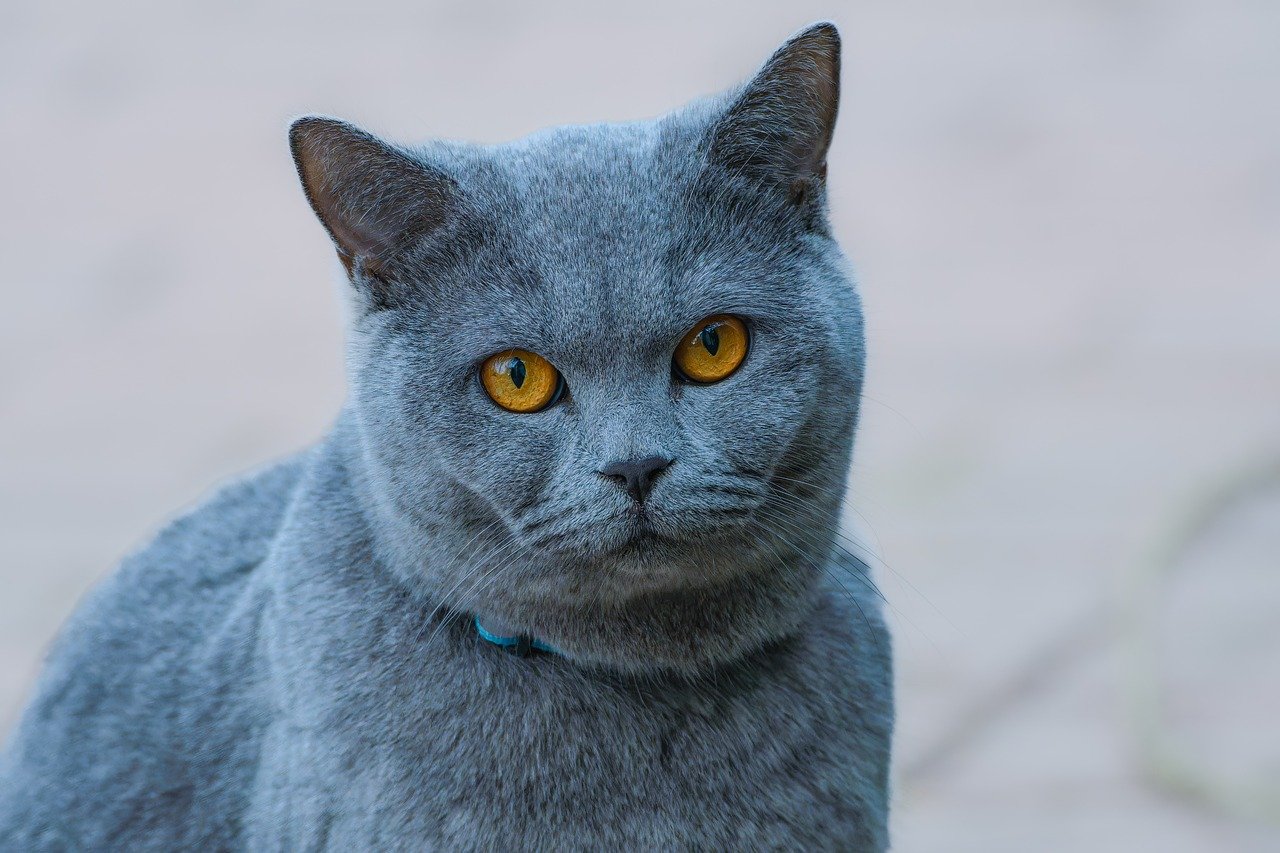
The Aging Process in Cats
As our furry friends age, they undergo a series of changes that can significantly affect their health and nutritional needs. Just like humans, cats experience a variety of physical and physiological transformations as they transition into their senior years. Understanding these changes is crucial for pet owners who want to ensure their feline companions lead happy, healthy lives. So, what exactly happens to our cats as they get older? Let's dive into the aging process and its implications.
One of the most noticeable changes in senior cats is a decline in their metabolism. As they age, their bodies become less efficient at processing nutrients, which can lead to weight gain if their diet isn't adjusted accordingly. Additionally, senior cats often experience a decrease in muscle mass, making it essential to provide them with high-quality protein to maintain their strength and vitality. Think of it like a car that needs premium fuel to run smoothly; your older cat requires better nutrition to keep its engine running.
Moreover, the aging process can affect a cat's dental health. Many senior cats develop dental issues such as periodontal disease, which can make chewing difficult and painful. This not only impacts their ability to eat but also affects their overall health. If your cat is struggling with dental problems, you might notice them opting for softer foods or even avoiding meals altogether. It's crucial to monitor their eating habits and consult a veterinarian if you notice any changes.
Another significant aspect of aging in cats is the increased likelihood of developing chronic health conditions. Senior cats are more prone to diseases such as arthritis, diabetes, and kidney disease. These conditions can alter their dietary requirements, making it imperative to tailor their nutrition to support their specific health needs. For instance, a cat with kidney disease may require a diet lower in protein and phosphorus, while one with arthritis might benefit from anti-inflammatory ingredients.
In summary, the aging process in cats is complex and multifaceted. It involves changes in metabolism, muscle mass, dental health, and the risk of chronic diseases, all of which can significantly impact their nutritional needs. By understanding these factors, cat owners can make informed decisions about their pets' diets, ensuring they receive the right nutrients to thrive in their golden years.
- What age is considered senior for cats? Generally, cats are considered senior when they reach 7 years of age, although some breeds may age faster.
- How can I tell if my senior cat is healthy? Regular veterinary check-ups, monitoring their weight, and observing their eating and drinking habits can help you assess their health.
- Should I change my senior cat's diet? Yes, as cats age, their nutritional needs change. It's important to provide a diet that supports their health and well-being.
- Can senior cats eat regular cat food? While some senior cats can eat regular food, it's best to choose a diet specifically formulated for their age group.
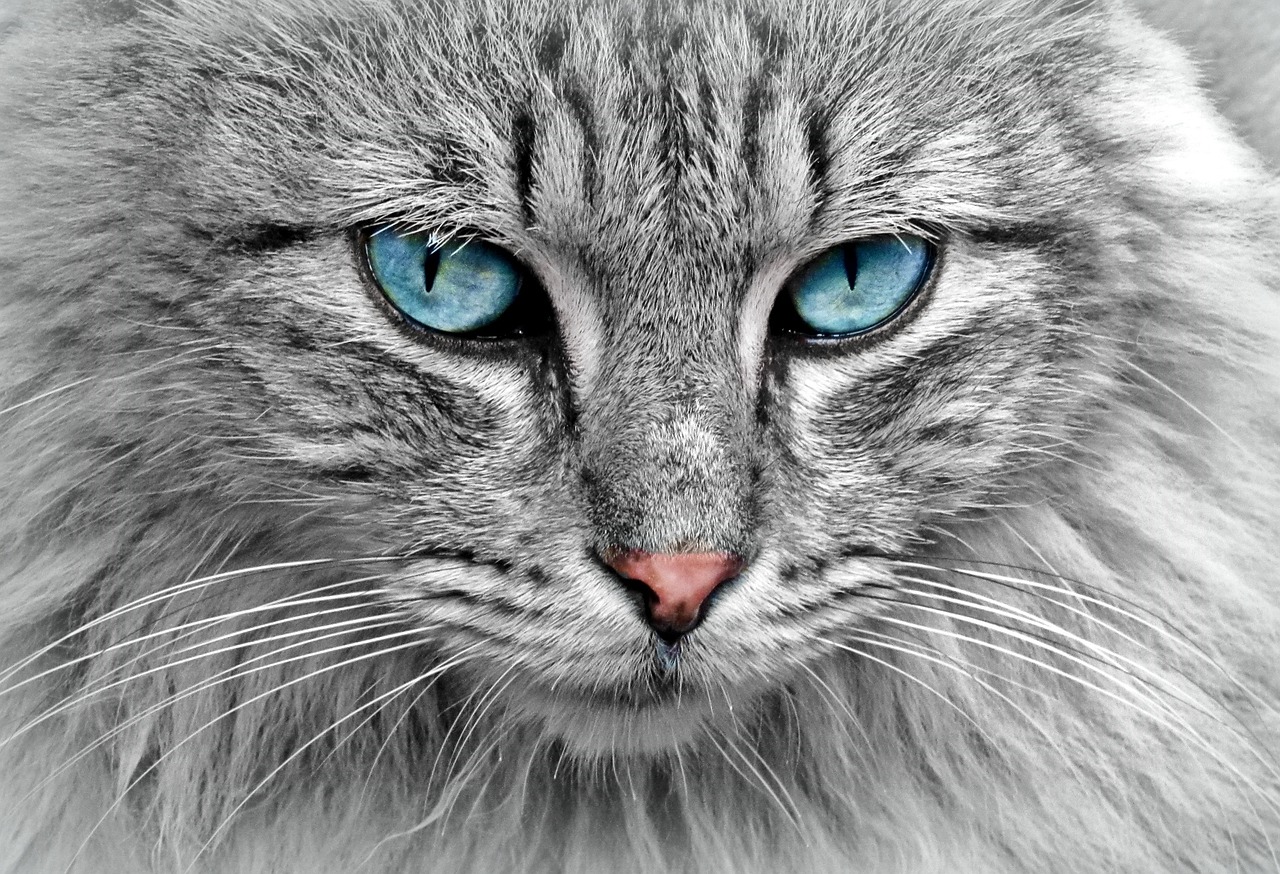
Nutritional Requirements for Senior Cats
As our feline friends age, their bodies go through significant changes that directly impact their nutritional requirements. Senior cats, typically defined as those over the age of seven, often experience a decrease in metabolism, changes in body composition, and various health issues that require a tailored diet. Understanding these unique needs is essential for ensuring that our beloved companions maintain their health and vitality in their golden years.
One of the most critical aspects of a senior cat's diet is the need for high-quality protein. Unlike younger cats, senior felines require more protein to help preserve muscle mass, which tends to diminish with age. A diet rich in protein not only supports muscle maintenance but also provides the necessary energy for daily activities. Ideally, senior cat food should contain at least 30-40% protein derived from high-quality animal sources. This leads us to the next important consideration: the source of protein.
When it comes to protein, animal-based proteins are generally more beneficial for senior cats than plant-based proteins. Animal proteins provide essential amino acids that are vital for a cat's overall health. In contrast, while plant proteins can contribute to the protein content of a diet, they often lack certain amino acids that cats need. To help illustrate this, consider the following table:
| Protein Source | Amino Acid Profile | Digestibility |
|---|---|---|
| Chicken | Complete | High |
| Fish | Complete | High |
| Beans | Incomplete | Moderate |
| Rice | Incomplete | Moderate |
This table clearly shows that while animal proteins provide a complete amino acid profile, plant proteins like beans and rice do not. Therefore, it’s crucial for pet owners to prioritize animal-based protein sources in their senior cat's diet.
In some cases, senior cats may require additional protein beyond what is provided in their regular diet. This is where protein supplements come into play. Supplements can be beneficial for cats recovering from illness or those that have lost weight due to age-related issues. However, it's essential to consult with a veterinarian before introducing any supplements to ensure they are appropriate for your cat's specific health needs.
Another vital component of a senior cat's diet is fat. While fat often gets a bad rap, it is an essential source of energy, particularly for older cats. The key is to balance fat intake to avoid obesity, which is a common issue in senior felines. A diet that includes healthy fats—such as those derived from fish oil or chicken fat—can help maintain energy levels without leading to excessive weight gain.
In summary, the nutritional requirements for senior cats revolve around providing high-quality protein from animal sources, considering the potential need for protein supplements, and balancing fat intake to maintain energy levels. By understanding and addressing these needs, pet owners can help ensure their senior cats lead a healthy and active life.
Protein Needs
When it comes to the dietary needs of senior cats, protein stands out as a crucial component. As our feline friends age, they naturally lose muscle mass, and without the right amount of protein, this process can accelerate. Think of protein as the building blocks of their bodies; without it, their muscles can weaken, leading to a host of health issues. In fact, the right level of protein can help maintain their strength and agility, ensuring they stay active and spry well into their golden years.
So, how much protein does a senior cat actually need? Generally, it’s recommended that senior cats consume at least 30-40% of their daily caloric intake from protein. This is a significant increase compared to younger cats, who can thrive on lower percentages. The key is to focus on high-quality protein sources that provide the essential amino acids necessary for muscle maintenance and overall health.
But not all protein is created equal! Senior cats benefit most from animal-based proteins rather than plant-based ones. Animal proteins are more digestible and provide a complete amino acid profile that cats require. Here’s a quick comparison:
| Type of Protein | Source | Benefits |
|---|---|---|
| Animal Proteins | Chicken, Fish, Turkey | High digestibility, complete amino acids |
| Plant Proteins | Beans, Peas, Soy | Lower digestibility, incomplete amino acids |
In some cases, senior cats may struggle to get enough protein from their regular diet alone. This is where protein supplements can come into play. These supplements can be particularly beneficial for cats that are underweight or have specific health issues that require additional protein intake. However, it’s essential to consult with a veterinarian before adding any supplements to your cat's diet, as too much protein can also pose risks.
Ultimately, ensuring your senior cat receives adequate protein is vital for their health and well-being. By focusing on high-quality animal protein sources and considering supplements when necessary, you can help your beloved feline maintain their strength, energy, and overall quality of life.
- What is the best source of protein for senior cats? High-quality animal proteins like chicken and fish are recommended.
- Can I give my senior cat protein supplements? Yes, but consult your veterinarian first to determine the right type and amount.
- How can I tell if my cat is getting enough protein? Look for signs like weight loss, lethargy, and muscle wasting; regular vet check-ups can help monitor their health.
Animal vs. Plant Proteins
When it comes to the diet of senior cats, the source of protein can make a significant difference in their overall health and well-being. Animal proteins and plant proteins each have unique characteristics that can impact a cat's nutritional needs, especially as they age. For senior cats, who often face challenges like muscle loss and weakened immune systems, the quality and digestibility of protein are paramount.
Animal proteins, such as chicken, fish, and beef, are generally considered the gold standard for feline nutrition. This is largely because they provide all the essential amino acids that cats require for optimal health. Cats are obligate carnivores, meaning their bodies are designed to thrive on animal-based proteins. These proteins not only support muscle maintenance but also play a crucial role in various metabolic processes. For example, amino acids from animal sources help in the production of enzymes and hormones, which are vital for maintaining a healthy body.
On the other hand, plant proteins, found in ingredients like soybeans and peas, can be less effective for senior cats. While they can contribute to the protein content of a diet, they often lack one or more essential amino acids. This deficiency can hinder a cat's ability to maintain muscle mass and overall vitality. Moreover, some senior cats may have difficulty digesting plant proteins, which can lead to gastrointestinal issues. It's essential to note that while plant proteins can be included in a senior cat's diet, they should not be the primary source of protein.
To illustrate the differences between animal and plant proteins, consider the following table:
| Type of Protein | Source | Benefits | Potential Drawbacks |
|---|---|---|---|
| Animal Protein | Chicken, Fish, Beef | Complete amino acid profile, highly digestible | Higher cost, potential allergens |
| Plant Protein | Peas, Soybeans | Cost-effective, fiber content | Incomplete amino acid profile, harder to digest |
In summary, while both animal and plant proteins can have a place in a senior cat's diet, prioritizing high-quality animal proteins is crucial for their health. It's always best to consult with a veterinarian to tailor a diet that meets your senior cat's specific needs, ensuring they receive the right balance of nutrients to stay healthy and active.
- What are the best protein sources for senior cats? High-quality animal proteins such as chicken, turkey, and fish are the best options.
- Can senior cats thrive on a vegetarian diet? It's challenging for senior cats to thrive on a vegetarian diet due to their obligate carnivore status.
- How can I tell if my senior cat is getting enough protein? Look for signs like maintaining muscle mass and overall energy levels; consult your vet for specific recommendations.
Protein Supplements
As our feline friends age, their bodies may require a little extra help, especially when it comes to maintaining their muscle mass. This is where can come into play. You might be wondering, "Do senior cats really need protein supplements?" The answer is a resounding yes, but with a few caveats. Not all senior cats will require them, but for those that do, the right type and amount can make all the difference in their overall health and vitality.
Protein supplements are particularly beneficial for senior cats who may be experiencing muscle loss due to aging or those with increased protein needs due to health conditions. These supplements can come in various forms, including powders, treats, or liquid formulations, making it easier to incorporate them into your cat's diet. However, it's essential to choose high-quality supplements that are specifically designed for feline nutrition. After all, you wouldn’t want to give your cat anything that isn’t tailored to their unique needs!
When considering protein supplements, it’s crucial to consult with your veterinarian. They can help determine if your cat truly needs additional protein and recommend the appropriate type and dosage. Here are some factors to consider:
- Age and Health Status: Older cats may have different protein requirements based on their health conditions.
- Type of Protein: Look for supplements that contain high-quality, animal-based proteins as these are more easily digestible for cats.
- Form of Supplement: Choose a form that your cat will readily accept. Some cats may prefer powders mixed into their food, while others might enjoy protein-rich treats.
Incorporating protein supplements into your senior cat's diet should be done gradually. Start with a small amount and monitor your cat's response. If they seem to enjoy it and show no adverse reactions, you can slowly increase the dosage as recommended by your vet. Remember, the goal is to enhance their diet, not to replace their regular food. Think of protein supplements as a little boost, similar to how we might take a multivitamin to ensure we’re getting all the nutrients we need.
Ultimately, the key to a healthy senior cat is a well-balanced diet that meets their unique nutritional needs. Protein supplements can be a valuable addition to that diet, helping to maintain muscle mass and support overall health. Just keep in mind that every cat is different, and what works for one may not work for another. Always prioritize your cat's individual needs and consult with a professional for the best results.
1. How do I know if my senior cat needs protein supplements?
If your cat is losing weight, experiencing muscle loss, or has specific health issues, consult your veterinarian to assess their protein needs.
2. Are there any side effects of protein supplements for cats?
While protein supplements are generally safe, excessive protein can lead to kidney strain, especially in cats with pre-existing kidney issues. Always follow your vet's recommendations.
3. Can I give my cat human protein supplements?
No, human protein supplements are not designed for cats and may contain ingredients that are harmful to them. Always choose products specifically formulated for feline nutrition.
4. How can I incorporate protein supplements into my cat's diet?
You can mix powders into their food, offer protein-rich treats, or use liquid supplements as a food topper. Just ensure that your cat enjoys the taste!
Fat and Energy Levels
When it comes to the nutritional needs of senior cats, fat plays a crucial role in providing the energy they require to maintain their daily activities. As our feline friends age, their metabolism tends to slow down, which means they may not need as many calories as they did in their younger years. However, this doesn’t mean we should eliminate fat from their diet—far from it! In fact, healthy fats are essential for maintaining energy levels, supporting cell function, and promoting a shiny coat.
It’s important to strike a balance when it comes to fat intake. Senior cats often benefit from a diet that includes a moderate amount of fat, as it helps them feel satisfied and less likely to overeat. Too much fat, however, can lead to obesity, which is a common issue in older cats. Obesity can exacerbate other health problems, such as diabetes and joint issues, making it crucial to monitor their weight closely.
So, what types of fats should you be looking for in your senior cat’s food? Here are some key points to consider:
- Omega-3 and Omega-6 fatty acids: These are essential fats that help reduce inflammation and support heart health. Look for cat foods that include fish oil or flaxseed oil as sources of these beneficial fatty acids.
- Moderation is key: While fats are important, they should not make up more than 20-30% of your cat's total caloric intake. This helps maintain a healthy weight while still providing the energy they need.
- Quality over quantity: Focus on high-quality fat sources. Animal fats are generally more digestible and beneficial for cats compared to plant-based fats.
To give you a clearer picture, here’s a simple comparison of fat content in various types of cat food:
| Type of Food | Fat Content (%) | Notes |
|---|---|---|
| Wet Food | 8-15% | Generally higher in moisture, which can aid in hydration. |
| Dry Food | 10-25% | More concentrated, so monitor portions closely. |
| Raw Diet | 15-30% | Can vary significantly; choose high-quality protein sources. |
Ultimately, the goal is to ensure that your senior cat maintains a healthy weight while still having enough energy to enjoy their golden years. Regular veterinary check-ups can help you assess your cat’s weight and overall health, allowing for adjustments to their diet as needed. Remember, every cat is unique, and their dietary needs may vary based on factors like activity level, health status, and individual preferences.
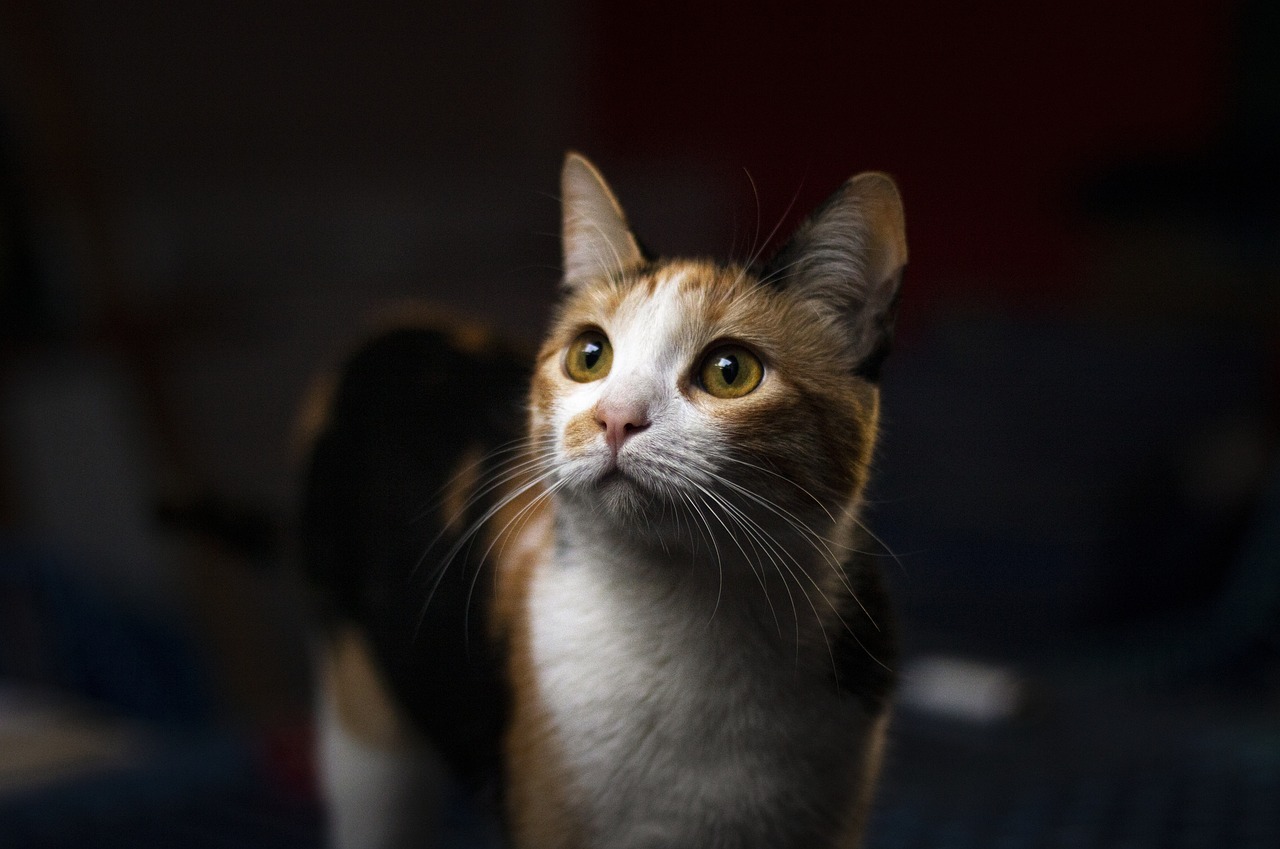
Hydration Needs
When it comes to our beloved senior cats, hydration is an often overlooked yet crucial aspect of their overall health. As cats age, their ability to conserve water diminishes, making them more susceptible to dehydration and kidney issues. You might wonder, "How can I ensure my furry friend stays hydrated?" Well, let's dive into some practical ways to keep your older feline well-hydrated.
First off, it’s essential to understand that senior cats may not drink enough water on their own. They might be too comfortable lounging around or simply forget to drink, which can lead to serious health complications. Therefore, it’s vital to create an environment that encourages regular water intake. Here are some tips:
- Provide Fresh Water Daily: Cats are finicky creatures, and stale water can be a turn-off. Make sure to change their water at least once a day to keep it fresh and appealing.
- Use Multiple Water Bowls: Place water bowls in various locations around your home. This way, your cat can easily access water no matter where they are lounging.
- Consider a Water Fountain: Many cats are attracted to running water. A cat water fountain can entice your senior to drink more frequently, as they instinctively prefer fresh, flowing water.
Another effective strategy for ensuring hydration is to incorporate wet food into their diet. Wet food contains significantly more moisture than dry kibble, which can help meet their hydration needs. In fact, a typical can of wet cat food can contain up to 78% water! This can be particularly beneficial for senior cats who may be reluctant to drink enough water on their own.
However, the debate between wet and dry food is ongoing. While wet food has its advantages, dry food can also contribute to your cat's overall hydration when paired with adequate water intake. Here's a quick comparison:
| Type of Food | Moisture Content | Benefits | Drawbacks |
|---|---|---|---|
| Wet Food | Up to 78% | High moisture content; palatable; can help with hydration | Higher cost; shorter shelf life once opened |
| Dry Food | 10% - 12% | Convenient; can help with dental health | Lower moisture content; may lead to dehydration if not paired with water |
Now, getting your senior cat to drink enough water can sometimes feel like pulling teeth. They can be quite stubborn! Here are some additional tips to encourage better hydration habits:
- Add Flavor: Consider adding a splash of low-sodium chicken broth to their water. The enticing aroma and flavor might just do the trick!
- Ice Cubes: Some cats enjoy playing with ice cubes. Toss a few in their water bowl to make it more interesting, and they might just take a sip.
- Monitor Their Intake: Keep an eye on how much your cat is drinking. If you notice a significant decrease, it might be time for a vet visit.
In conclusion, ensuring your senior cat stays hydrated is a vital part of their wellness routine. By providing fresh water, incorporating wet food, and creating an inviting drinking environment, you can help your furry friend maintain their health and vitality as they age. Remember, hydration is not just a necessity; it’s a key to a happy, healthy life for your beloved feline companion.
Q: How much water should a senior cat drink daily?
A: On average, a cat should drink about 3.5 to 4.5 ounces of water per 5 pounds of body weight daily. However, this can vary based on diet and activity level.
Q: Is it okay to feed my senior cat only dry food?
A: While dry food can be part of their diet, it’s essential to ensure they also have access to wet food or fresh water to meet their hydration needs.
Q: What are the signs of dehydration in cats?
A: Signs of dehydration can include dry gums, lethargy, sunken eyes, and loss of skin elasticity. If you notice these symptoms, consult your veterinarian immediately.
Wet vs. Dry Food
When it comes to feeding our beloved senior cats, the choice between wet and dry food can feel like a daunting decision. Both types have their own benefits and drawbacks, and understanding these can help you make an informed choice that best suits your feline friend's needs. Wet food, often seen as a delicacy, is rich in moisture, which is particularly beneficial for senior cats who may struggle with hydration. As cats age, their thirst drive can diminish, making them more susceptible to dehydration and kidney issues. The high water content in wet food can help keep their urinary tract healthy and reduce the risk of kidney disease.
On the other hand, dry food offers convenience and is generally more affordable. It's easy to store, has a longer shelf life, and can help keep your cat's teeth cleaner due to the crunchiness that helps reduce plaque buildup. However, the lower moisture content in dry food means that senior cats might not be getting enough hydration, which is crucial for their overall health.
To better understand the differences, let's take a look at a quick comparison:
| Aspect | Wet Food | Dry Food |
|---|---|---|
| Moisture Content | High (up to 80%) | Low (around 10%) |
| Convenience | Less convenient, needs refrigeration | Very convenient, easy to store |
| Dental Health | Less effective | Helps reduce plaque |
| Taste Preference | Generally more appealing | Varies widely |
Ultimately, the choice between wet and dry food should depend on your cat's individual health needs, preferences, and lifestyle. Some pet owners even find a combination of both works best, providing the benefits of hydration from wet food while also maintaining the dental health benefits of dry food. It’s always a good idea to consult with your veterinarian to tailor the diet that best suits your senior cat's specific requirements.
- Can I mix wet and dry food for my senior cat? Yes, many cat owners find that a combination of both types of food can provide the best of both worlds.
- How much wet food should I feed my senior cat? The amount can vary based on your cat's weight and activity level. Consult with your vet for personalized recommendations.
- Is wet food better for senior cats with kidney issues? Yes, wet food can help increase hydration, which is crucial for managing kidney health.
Encouraging Water Intake
Getting our senior cats to drink enough water can sometimes feel like trying to teach a cat to fetch—it's a challenge! As cats age, their thirst drive may diminish, making it crucial for us to find creative ways to encourage them to stay hydrated. You might wonder, "Why is hydration so important?" Well, senior cats are more prone to kidney issues, and proper hydration can significantly impact their overall health. So, let's dive into some practical tips that can help your furry friend sip their way to better health!
First off, consider the type of water bowls you use. Cats can be quite picky about their drinking vessels. A wide, shallow bowl is often favored over a deep one, as it allows them to see their surroundings while drinking. Additionally, you might want to experiment with different materials—some cats prefer ceramic or stainless steel over plastic, which can sometimes impart unwanted flavors. If you notice your cat is reluctant to drink from their bowl, try changing it up!
Another effective method is to incorporate water into their diet. Wet food is a fantastic option because it contains a higher moisture content than dry kibble. In fact, wet food can provide up to 80% moisture, which is a great way to boost their hydration levels. If your cat is resistant to wet food, you can also try adding a bit of water or low-sodium broth to their dry kibble. This not only enhances the flavor but also makes it more appealing and easier to consume.
To further encourage your cat to drink, consider investing in a cat water fountain. Cats are naturally attracted to running water, and a fountain can provide a continuous flow that keeps their interest piqued. The sound and movement of the water can entice even the most reluctant drinkers. Plus, many fountains have filters that keep the water clean and fresh, making it more appealing to your feline companion.
Lastly, make water accessible at all times. Place multiple water bowls around your home, especially in areas where your cat spends a lot of time. This way, they won't have to wander far when they feel thirsty. Remember, a cat's hydration needs can vary based on their activity level, diet, and health status, so it's essential to monitor their drinking habits regularly.
In conclusion, encouraging water intake in senior cats may require a bit of creativity and experimentation. By providing a variety of drinking options and incorporating hydration into their diet, you can help ensure that your beloved feline stays hydrated and healthy. After all, a well-hydrated cat is a happy cat!
- How much water should a senior cat drink daily? Generally, a senior cat should drink about 3.5 to 4.5 ounces of water per 5 pounds of body weight daily, but this can vary based on diet and activity level.
- What are the signs of dehydration in cats? Signs include dry gums, lethargy, loss of appetite, and decreased skin elasticity. If you notice these signs, consult your veterinarian.
- Can I give my cat flavored water? While it may entice them to drink, ensure that any flavoring is safe for cats. Low-sodium broth can be a good option.
- Is wet food enough for hydration? Yes, wet food can significantly contribute to your cat’s hydration, but it's still essential to provide fresh water at all times.
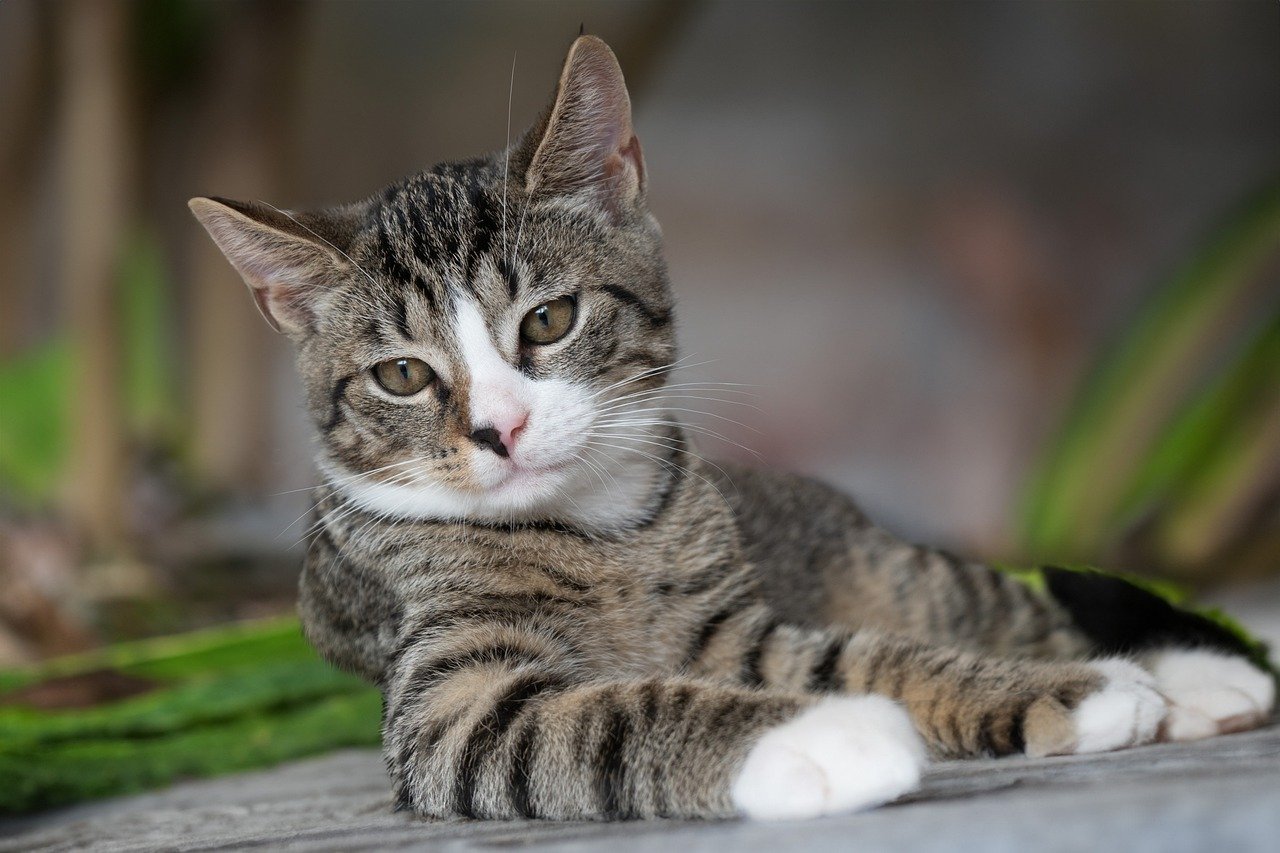
Common Health Issues in Senior Cats
As our feline friends age, they become increasingly susceptible to a variety of health issues that can significantly impact their quality of life. Understanding these common conditions is essential for any cat owner who wants to ensure their senior cat remains healthy and happy. Among the most prevalent issues are kidney disease, obesity, and hyperthyroidism. Each of these conditions not only affects the cat's health but also has direct implications for their nutritional needs.
Kidney disease is perhaps one of the most common ailments affecting older cats. As they age, their kidneys may struggle to filter waste effectively, leading to a buildup of toxins in the body. This can manifest in symptoms such as increased thirst, frequent urination, and weight loss. Diet plays a crucial role in managing kidney disease; a diet lower in protein but higher in quality can help mitigate some of the stress on the kidneys. It's important to consult with a veterinarian to tailor a diet that supports kidney health while ensuring your cat receives adequate nutrition.
Obesity is another significant concern for senior cats. With age, many cats become less active, which can lead to weight gain. Obesity can exacerbate other health issues, including diabetes and joint problems. To combat this, it’s vital to monitor your cat's weight and caloric intake closely. Regular exercise, even in small amounts, can help maintain a healthy weight. Providing a balanced diet that is lower in calories but rich in nutrients is essential for managing obesity in senior cats.
Hyperthyroidism is another condition that often arises in older cats. This disorder occurs when the thyroid gland produces too much thyroid hormone, leading to symptoms such as increased appetite, weight loss, and hyperactivity. Diet can play a role in managing hyperthyroidism, and many veterinarians recommend a specialized diet that is low in iodine to help control hormone production. Regular veterinary check-ups are crucial for early detection and management of hyperthyroidism.
In addition to these conditions, senior cats may also face dental problems, arthritis, and even cognitive dysfunction, which can all affect their dietary needs. For instance, a cat suffering from arthritis may require a diet supplemented with omega-3 fatty acids to help reduce inflammation. Similarly, a cat with dental issues may benefit from softer food options that are easier to chew.
Overall, keeping an eye on your senior cat's health and adjusting their diet accordingly can make a world of difference in their overall well-being. Regular veterinary visits are essential to catch any health issues early and to ensure that your cat's diet is tailored to their specific needs.
- What are the signs that my senior cat might be unwell?
Common signs include changes in appetite, weight loss, increased thirst, and changes in behavior. If you notice any of these symptoms, consult your veterinarian. - How often should I take my senior cat to the vet?
It's advisable to take senior cats for check-ups at least twice a year, as they are more prone to health issues. - Can I feed my senior cat regular cat food?
While some senior cats can eat regular food, it's best to choose a diet specifically formulated for older cats, as their nutritional needs differ. - What is the best way to manage my cat's weight?
Monitor their diet closely, provide regular exercise, and consult your veterinarian for a weight management plan tailored to your cat's needs.
Kidney Disease
Kidney disease is a common ailment among senior cats, and it can significantly impact their quality of life. As our feline friends age, their kidneys may become less efficient at filtering waste from the blood, leading to a range of health problems. This gradual decline can often go unnoticed until it becomes more severe, which is why it's crucial for cat owners to be vigilant about their pet's health. Regular veterinary check-ups can help catch kidney issues early, but understanding the dietary implications of kidney disease is equally important.
When it comes to managing kidney disease in senior cats, diet plays a pivotal role. A low-protein diet may be recommended to reduce the workload on the kidneys. However, this does not mean that protein should be eliminated entirely; rather, the focus should be on providing high-quality, easily digestible proteins. Additionally, maintaining a proper balance of phosphorus and sodium is essential, as excessive levels of these minerals can exacerbate kidney issues.
Here's a brief overview of how diet can help manage kidney disease:
| Nutrient | Recommended Levels | Importance |
|---|---|---|
| Protein | Moderate levels from high-quality sources | Supports muscle mass while reducing kidney strain |
| Phosphorus | Low levels | Helps slow the progression of kidney disease |
| Sodium | Low levels | Reduces blood pressure and kidney workload |
In addition to adjusting nutrient levels, ensuring that your senior cat stays well-hydrated is crucial. Cats with kidney disease often suffer from dehydration, which can further complicate their condition. Providing wet food can be an effective way to boost their water intake, as it contains significantly more moisture than dry kibble. You might also consider placing multiple water bowls around the house or even investing in a cat water fountain, which can entice your feline to drink more.
Ultimately, managing kidney disease in senior cats involves a holistic approach that combines dietary changes with regular veterinary care. By keeping a close eye on their health and making informed choices about their nutrition, you can help your furry companion lead a healthier, happier life even in their golden years.
- What are the early signs of kidney disease in senior cats? Look for increased thirst, frequent urination, weight loss, and changes in appetite or behavior.
- Can kidney disease be reversed? Unfortunately, kidney disease is often progressive and cannot be reversed, but its progression can be managed with the right diet and care.
- How often should I take my senior cat to the vet? Regular check-ups every 6 months are recommended to monitor their health, especially for those over 10 years old.
Obesity and Weight Management
Obesity in senior cats is a growing concern, and it can significantly impact their overall health and quality of life. Just like in humans, excess weight can lead to a host of health issues, including diabetes, joint problems, and even heart disease. It’s essential to recognize that as cats age, their metabolism slows down, and their activity levels often decrease. This combination can lead to weight gain if their diet isn't adjusted accordingly. So, how do we tackle this issue and help our furry friends maintain a healthy weight?
First and foremost, it’s crucial to monitor your cat’s weight regularly. You can do this by weighing them at home or during veterinary check-ups. Keep an eye out for any noticeable changes in their body shape or size. A healthy cat should have a defined waist and not feel overly round when you run your hands along their sides. If you suspect your cat is overweight, it’s time to take action.
One of the most effective ways to manage obesity is through dietary adjustments. Here are some strategies to consider:
- Portion Control: Measure your cat’s food according to the guidelines provided on the packaging or as advised by your veterinarian. Overfeeding is a common mistake that can lead to weight gain.
- High-Quality Diet: Opt for high-quality cat food that is rich in protein and low in carbohydrates. Cats are obligate carnivores, which means they thrive on animal protein.
- Regular Feeding Schedule: Establish a consistent feeding routine. Instead of leaving food out all day, provide meals at set times to help regulate their intake.
In addition to dietary changes, incorporating exercise into your senior cat’s daily routine is vital. While older cats may not be as playful as they once were, you can still encourage them to move. Here are a few ideas:
- Interactive Toys: Use feather wands or laser pointers to engage your cat in play. Even short bursts of activity can be beneficial.
- Short Play Sessions: Keep play sessions brief but frequent. This approach can help maintain your cat's interest without overwhelming them.
- Cat Trees and Scratching Posts: Providing vertical spaces for climbing can encourage your cat to be more active.
It’s also essential to consult with your veterinarian if you suspect your cat is overweight. They can help you develop a tailored weight management plan that considers your cat’s specific needs. Additionally, they may recommend weight loss food that is lower in calories but still provides the necessary nutrients.
| Weight Management Tips | Details |
|---|---|
| Monitor Weight | Weigh your cat regularly to track any changes. |
| Portion Control | Measure food according to guidelines. |
| High-Quality Diet | Choose protein-rich, low-carb food. |
| Regular Vet Check-ups | Consult your vet for personalized advice. |
In summary, managing obesity in senior cats requires a combination of proper diet, portion control, and regular exercise. By taking proactive steps, you can help your feline friend maintain a healthy weight and enjoy a longer, happier life. Remember, it’s never too late to make changes that can positively affect your cat’s health!
Q: How can I tell if my cat is overweight?
A: Look for a defined waist and feel along their sides; if they feel rounded or you can't feel their ribs easily, they may be overweight.
Q: Is it safe for my senior cat to lose weight?
A: Yes, but it should be done gradually and under the guidance of a veterinarian to ensure it’s safe and effective.
Q: What types of food should I avoid for my senior cat?
A: Avoid foods high in carbohydrates and fillers, as they can contribute to weight gain and do not provide necessary nutrients.
Q: How much exercise does my senior cat need?
A: Even short play sessions of 10-15 minutes several times a day can help keep your cat active.
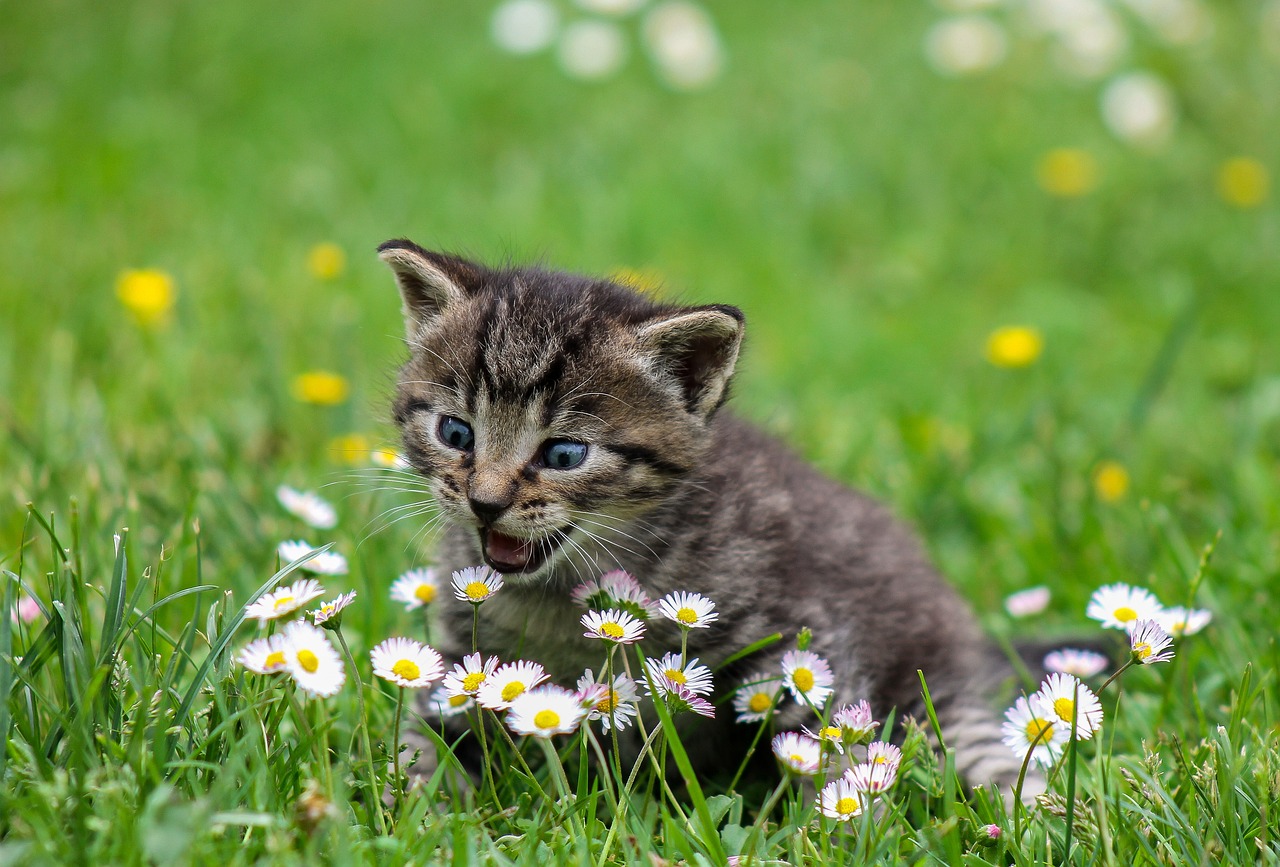
Choosing the Right Food
Choosing the right food for your senior cat can feel like navigating a maze with no exit. With so many options available, it’s easy to get overwhelmed. But fear not! Understanding your cat’s specific needs will help you make informed choices that can enhance their health and happiness. First and foremost, consider your cat's individual preferences and any health issues they may have. Just like humans, no two cats are alike, and what works for one may not work for another.
When selecting food, look for products specifically formulated for senior cats. These diets often contain the right balance of nutrients tailored to support aging bodies. Key nutrients to focus on include high-quality proteins, essential fatty acids, vitamins, and minerals. Reading the labels can be your best friend here. Familiarize yourself with the ingredients and nutritional information to ensure you’re providing the best for your feline friend.
Here are some important factors to consider when choosing senior cat food:
- Protein Content: Ensure the food contains high-quality animal proteins. Cats are obligate carnivores, meaning they thrive on animal-based proteins.
- Fat Levels: Look for a moderate fat content that provides energy without leading to obesity. Remember, senior cats tend to be less active, so balance is key.
- Digestibility: As cats age, their digestive systems may become less efficient. Choose easily digestible foods to help with nutrient absorption.
- Added Supplements: Some foods come fortified with omega fatty acids, probiotics, and antioxidants, which can be beneficial for senior cats.
It’s also essential to consider the form of the food. Wet food can be a great option for senior cats due to its higher moisture content, which aids in hydration. However, many cats enjoy dry food for its texture and crunch. A combination of both can provide a balanced diet and keep mealtime exciting. Just remember to monitor their weight and adjust portions as needed, as obesity can lead to further health complications.
Lastly, don’t hesitate to consult with your veterinarian. They can provide personalized recommendations based on your cat's health history and specific dietary needs. Regular check-ups are crucial in ensuring your cat remains healthy and happy as they age. Your vet can help you navigate the plethora of options available and assist you in making the best choices for your furry companion.
Q: How do I know if my cat is overweight?
A: You can check your cat's weight and body condition score with your veterinarian. A general rule is to feel for the ribs; they should be easily felt but not visible. If you can’t feel them, your cat may be overweight.
Q: Is it necessary to switch my cat to senior food?
A: While not strictly necessary, senior cat food is formulated to meet the specific needs of older cats, helping them maintain a healthy weight and supporting their overall health.
Q: Can I feed my senior cat homemade food?
A: Yes, but it’s essential to ensure that the homemade diet is nutritionally balanced. Consulting with a veterinarian or a pet nutritionist is recommended to avoid deficiencies.
Reading Labels
When it comes to selecting the best food for your senior cat, is an essential skill that can make a significant difference in their health and well-being. Just like we scrutinize the nutritional information on our food packages, you should do the same for your feline friend's meals. The first thing to look for is the ingredient list, which is usually found on the back or side of the packaging. Ingredients are listed in order of quantity, so the first few items are the most prominent in the food. Ideally, you want to see high-quality protein sources, such as chicken, turkey, or fish, right at the top.
Next, pay attention to the guaranteed analysis section. This part provides a breakdown of the nutrients in the food, including protein, fat, fiber, and moisture content. For senior cats, you should look for a food that contains at least 30% protein and moderate fat content, ideally around 15-20%. This balance helps maintain their muscle mass while providing enough energy without leading to weight gain.
Another critical aspect to consider is the presence of additives and preservatives. While some preservatives are necessary for shelf life, avoid foods with artificial colors, flavors, or chemical preservatives. Instead, look for natural preservatives like mixed tocopherols or vitamin E, which are safer for your cat's health.
To make the process easier, here’s a quick breakdown of what to look for when reading labels:
- High-quality protein sources should be listed first.
- Adequate protein content (30% or more).
- Moderate fat content (15-20%).
- No artificial additives or preservatives.
- Presence of essential nutrients like omega fatty acids, vitamins, and minerals.
Lastly, consider the life stage indicated on the label. Senior cat food is formulated to meet the specific needs of older felines, so look for products labeled as “senior” or “mature.” This ensures that the food is tailored to support their aging bodies. Remember, every cat is unique, so a little research and attention to detail can go a long way in providing your furry friend with a happy, healthy life.
Q: How can I tell if my senior cat is getting the right nutrition?
A: Monitor their weight, energy levels, and overall health. Regular veterinary check-ups can help assess their nutritional needs.
Q: Should I switch to senior cat food immediately?
A: It's best to transition gradually, mixing the new food with their current diet over a week to avoid digestive upset.
Q: Is wet food better than dry food for senior cats?
A: Wet food can provide additional hydration, but a balanced diet may include both wet and dry options based on your cat's preferences.
Q: How often should I feed my senior cat?
A: Most senior cats do well with two meals a day, but consult your veterinarian for personalized recommendations.
Consulting with a Veterinarian
When it comes to the health and well-being of your senior cat, consulting with a veterinarian is not just a good idea; it's essential. As our feline friends age, their bodies go through a myriad of changes, and what worked for them in their youth may no longer be appropriate. A vet can help you navigate these changes and ensure that your cat receives the right nutrition tailored to their specific needs. Just like we need a trusted advisor to guide us through life’s complexities, your cat deserves the same level of care.
Regular veterinary visits become increasingly important as your cat grows older. These appointments allow for routine health checks, vaccinations, and blood work that can catch potential issues before they become serious. Think of it as a wellness check-up that can save you and your pet from future heartache. During these visits, don’t hesitate to discuss any behavioral changes, dietary concerns, or health symptoms you've noticed. Your observations can provide valuable insights to your vet.
Moreover, your veterinarian can help you understand the specific dietary needs of your senior cat based on factors such as:
- Age
- Weight
- Activity level
- Pre-existing health conditions
They can recommend the best food options, whether it be a specially formulated senior cat food or a tailored diet plan that includes homemade meals. It's crucial to remember that not all commercial cat foods are created equal. Your vet can guide you through the maze of pet food labels, helping you identify high-quality ingredients that meet your cat's nutritional requirements.
In addition to diet, your veterinarian can also recommend appropriate supplements if your cat requires extra support. For instance, if your senior cat is experiencing joint issues, omega-3 fatty acids might be beneficial. Similarly, if they are struggling with kidney health, a diet lower in phosphorus could be recommended. The right supplements can make all the difference in your cat's quality of life.
Ultimately, your veterinarian is your partner in ensuring your senior cat leads a happy and healthy life. By consulting with them regularly, you can make informed decisions about your cat's diet and overall care. So, don’t wait for a problem to arise; establish a proactive approach to your cat’s health today!
Here are some common questions pet owners have regarding the nutritional needs of senior cats:
- How often should I take my senior cat to the vet? It's recommended to schedule a veterinary check-up at least twice a year for senior cats.
- What signs indicate my cat may need a dietary change? Look for changes in weight, energy levels, or eating habits. If you notice anything unusual, consult your vet.
- Can I feed my senior cat human food? Some human foods are safe for cats, but always check with your veterinarian before making any changes to their diet.
- What are the best types of food for senior cats? Senior cat foods that are high in quality protein and low in calories are generally recommended, but always consult your vet for personalized advice.
Frequently Asked Questions
- What are the key nutritional needs of senior cats?
Senior cats require a diet that is rich in high-quality protein to help maintain their muscle mass, along with balanced fat levels to provide energy without leading to obesity. Additionally, they need adequate hydration, which can be achieved through wet food or encouraging water intake.
- How does aging affect a cat's metabolism?
As cats age, their metabolism slows down, which can lead to weight gain if their calorie intake isn't adjusted. Older cats may also have different digestive capabilities, making it essential to choose easily digestible foods that meet their specific nutritional needs.
- Is wet food better than dry food for senior cats?
Wet food can be beneficial for senior cats as it contains more moisture, helping to keep them hydrated and supporting kidney health. However, dry food can also be part of a balanced diet. It's important to consider your cat's preferences and health needs when choosing between the two.
- How can I encourage my senior cat to drink more water?
You can encourage your senior cat to drink more water by providing fresh water daily, using a cat water fountain, or adding water or broth to their food. Offering wet food is another effective way to increase their overall fluid intake.
- What should I look for on cat food labels for seniors?
When reading cat food labels for seniors, look for high-quality animal proteins, appropriate fat levels, and added vitamins and minerals. Avoid foods with excessive fillers and artificial additives. Ingredients should be clearly listed, and the protein source should be identifiable.
- How often should I consult my veterinarian about my senior cat's diet?
It's recommended to consult your veterinarian at least once a year for a senior cat's dietary needs. If your cat has any health issues or changes in behavior, more frequent consultations may be necessary to ensure they are receiving the right nutrition.
- What are common health issues in senior cats that affect their diet?
Common health issues in senior cats include kidney disease, obesity, and dental problems. Each of these conditions can significantly impact their dietary needs, making it crucial to tailor their diet to manage these issues effectively.
- Can I give my senior cat protein supplements?
Yes, protein supplements can be beneficial for senior cats, especially if they are not getting enough protein from their regular diet. However, it's essential to consult with your veterinarian before adding any supplements to ensure they are appropriate for your cat's specific health needs.



